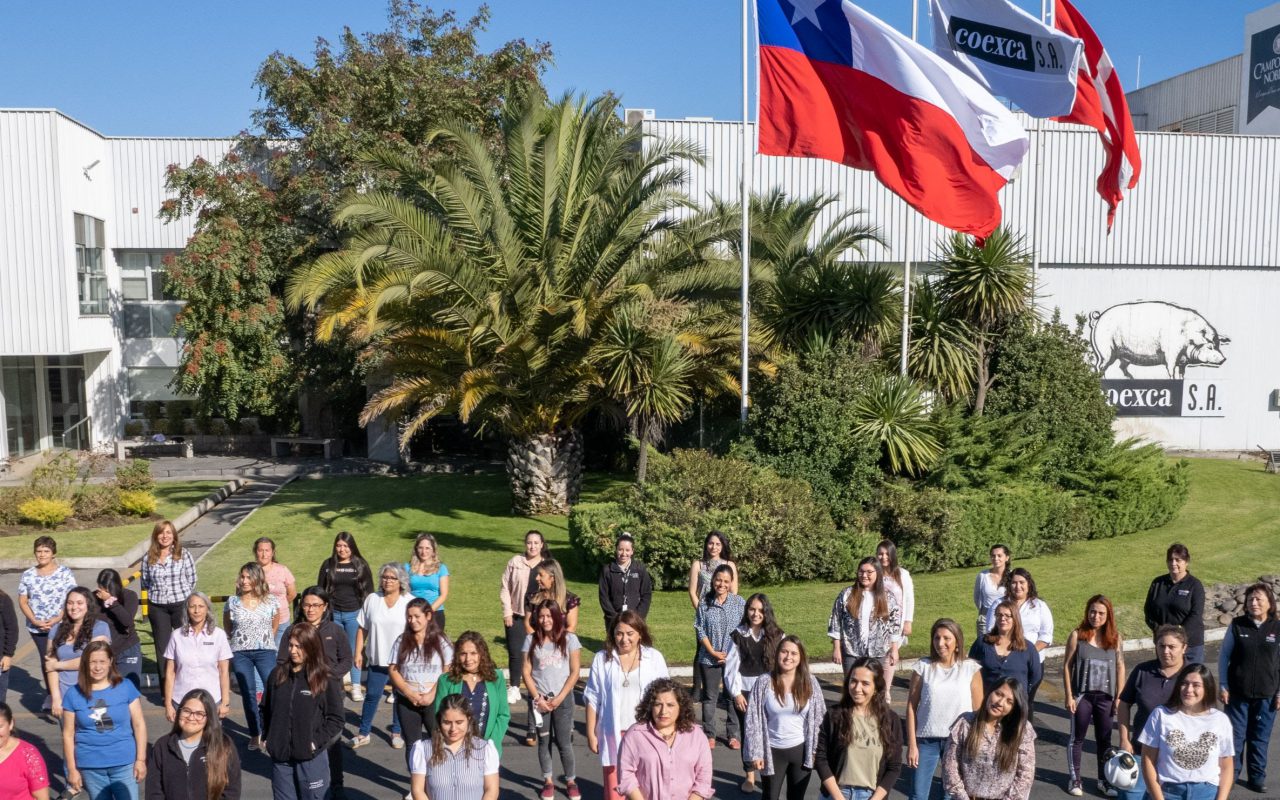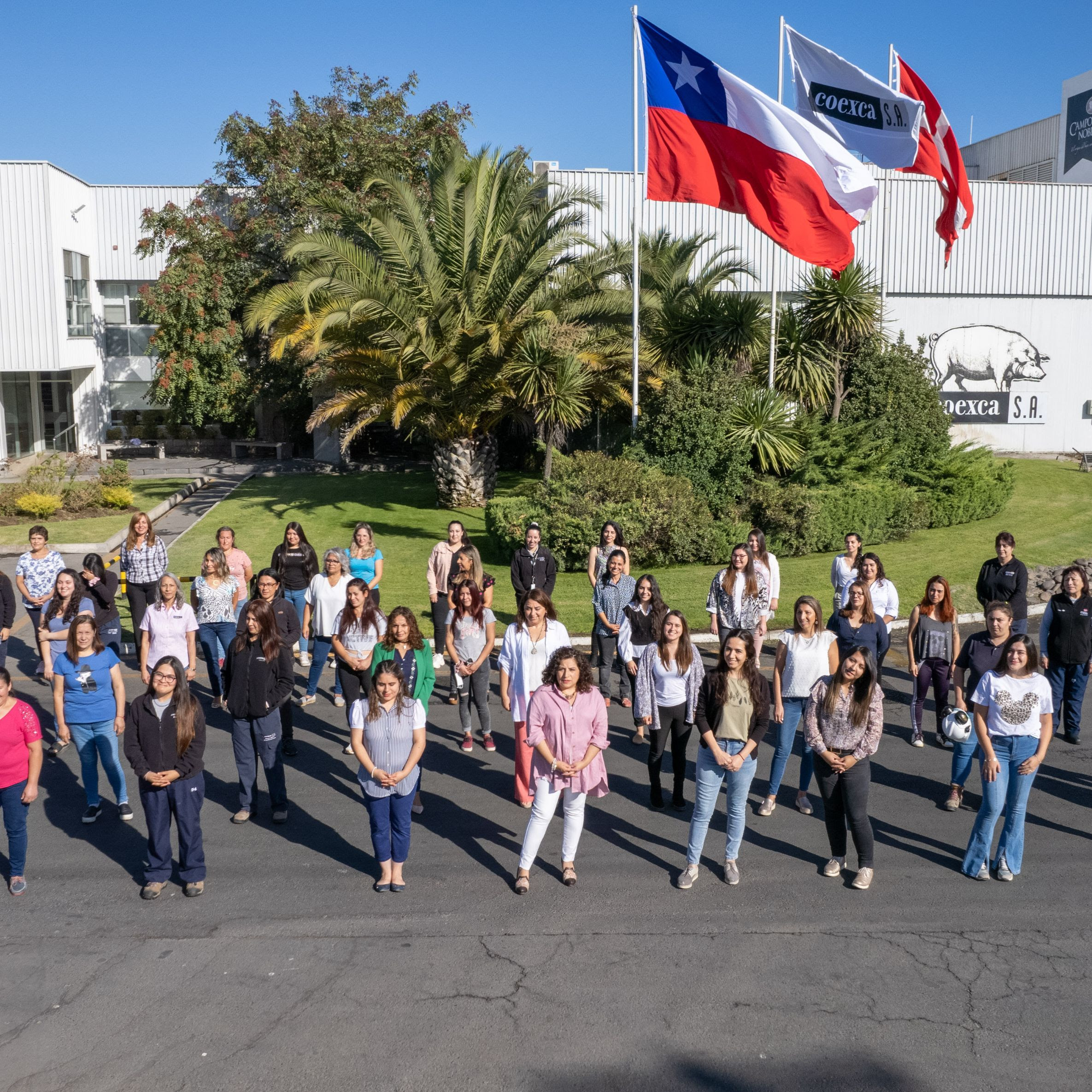
Women in the Chilean pork industry: bringing diversity and leadership to a fast-growing sector
According to figures for 2022, 4,744 women work in the white meat industry, pork sector included, representing 21% of the industry’s total workforce. This number has been growing thanks to various measures and programs to eliminate biases against the incorporation of women to its operations. Traditionally, the Chilean white meat industry and the pork sector […]

According to figures for 2022, 4,744 women work in the white meat industry, pork sector included, representing 21% of the industry’s total workforce. This number has been growing thanks to various measures and programs to eliminate biases against the incorporation of women to its operations.
Traditionally, the Chilean white meat industry and the pork sector were mostly made up of men, but in recent years they have seen an increase in women performing various roles in different areas. As companies aim to diversify their workforce and increase productivity, many women have found opportunities in this industry.
The integration of more women has produced a shift in the work culture. Companies conduct various initiatives that promote an inclusive and welcoming work environment for women, while they implement policies to guarantee equal opportunities in the workplace. All of this has boosted women’s confidence and sense of belonging in the sector.
Following the commemoration of International Women’s Day on March 8, it is worth looking at what Chilean pork producers −members of ChileCarne− have been promoting in recent years. The association represents the ChilePork brand under which Chilean pork is promoted in various countries.
“At Agrosuper, we believe in the power of diversity, working to highlight and promote female participation at different levels of the organization. 2022 was a successful year in this regard: 45% of promotions to leadership positions were awarded to women and we hired over 900 women for our operations, helping reduce bias about female or male roles and creating the conditions to boost opportunities for women in our many openings,” a company statement points out.
At Coexca, women are a key pillar at all organizational levels, and their presence is gradually increasing in different areas, as has been the case in the meat industry in general. The company’s General Manager, Guillermo García, believes women bring a new perspective to Coexca’s decision-making throughout all areas and levels. In line with the above, the number of women in leadership positions proves that the company values equal opportunities and talent regardless of gender. “The commemoration of International Women’s Day is a time to appreciate and thank each and every woman, who are an important part of our organization, for their contribution to our growth and tackling the challenges we face. They also add to a positive working environment, which is vital for the company,” García pointed out.
Lorena Alfaro works at AASA’s maternity unit, and she adds: “I think at first it was difficult for more women to join AASA. Today, the company’s environment is more welcoming. When I compare how it was when I first joined the company to today, huge progress has been made for women to be able to work here, particularly in terms of flexibility in different situations. The team is much more welcoming and there is also more support from our male colleagues. I think this is a beautiful job more women should learn about to make their contribution. It would be great that more women join the company because it is a positive experience that I personally recommend. It is also a job for women, not just for men as some think. I believe that we women can be a contribution to the industry.”
“Our sector is committed to promoting the participation of women at all industry levels. We know that having equal opportunities and a diverse workforce is not just a matter of social justice; it is also essential for innovation and the sustainable growth of our companies. Our various initiatives reaffirm our commitment to keep working on eliminating barriers and promoting policies and practices for gender equality in the Chilean white meat industry, particularly in the pork sector,” concluded Juan Carlos Domínguez, President of ChileCarne.
